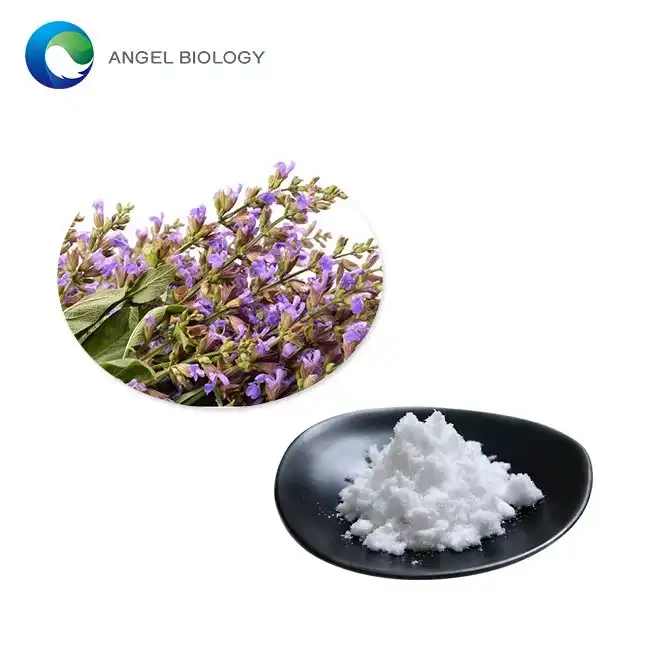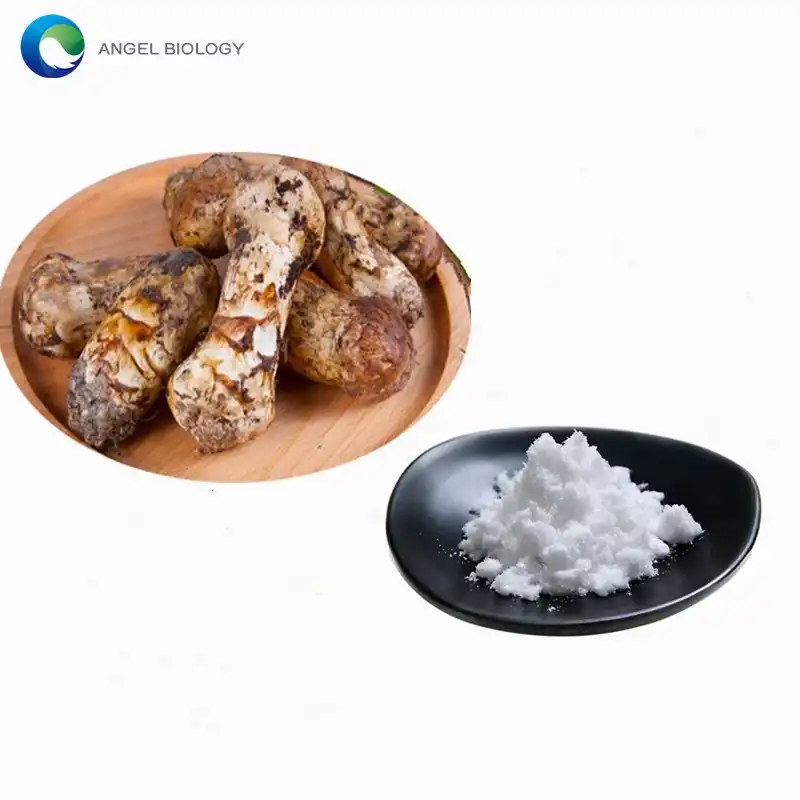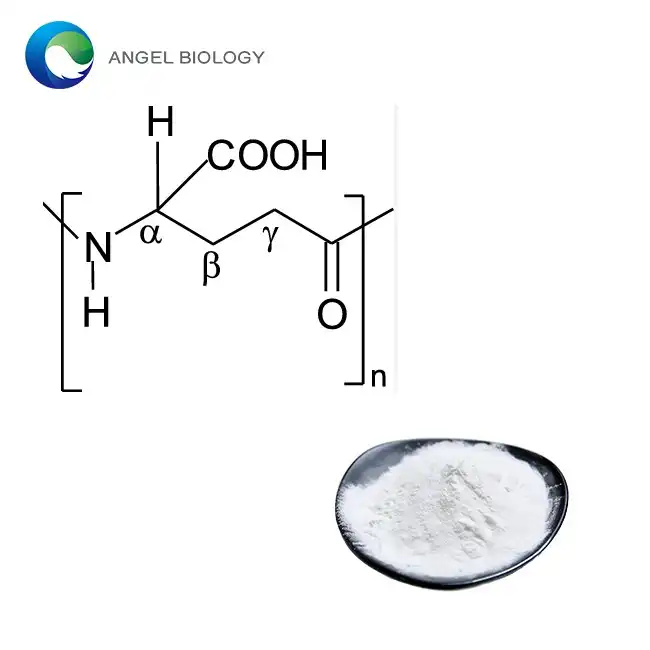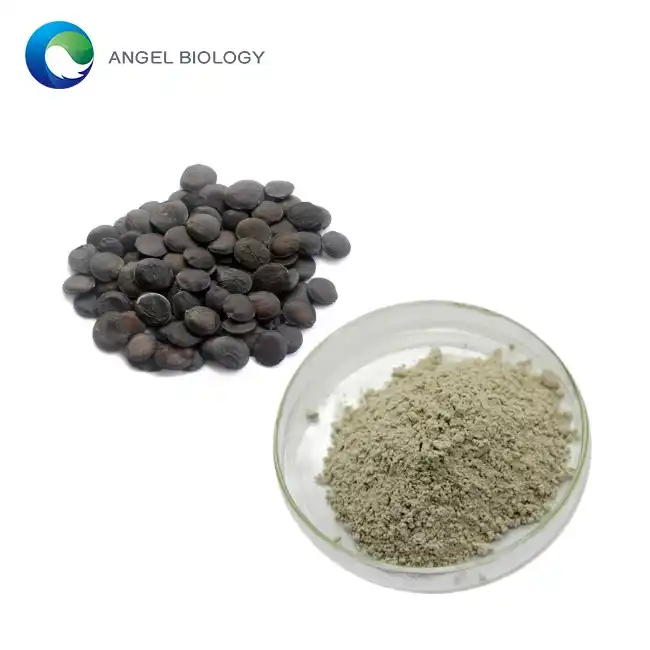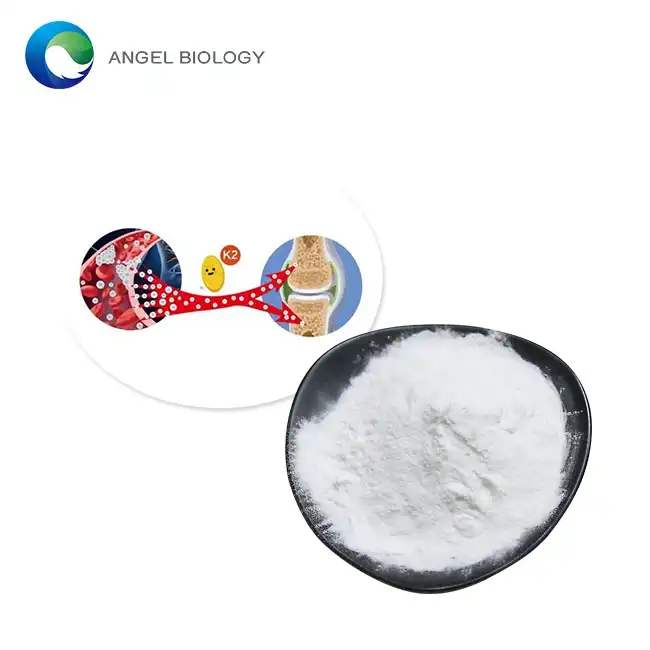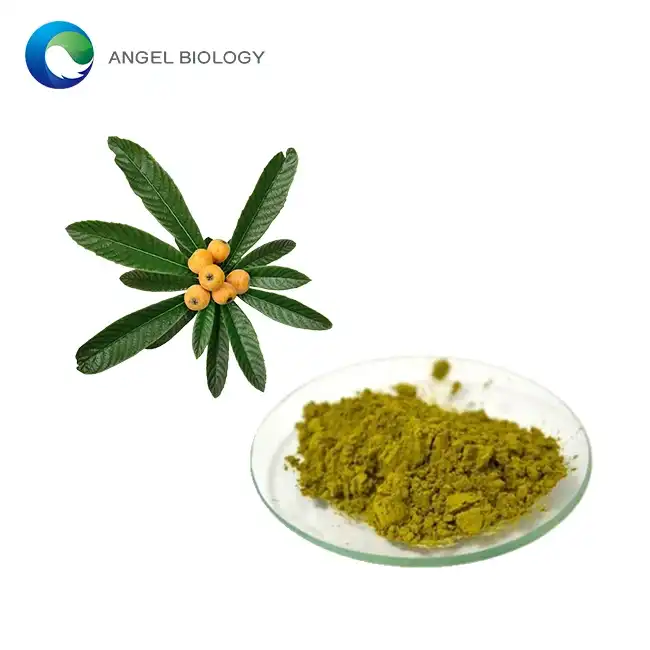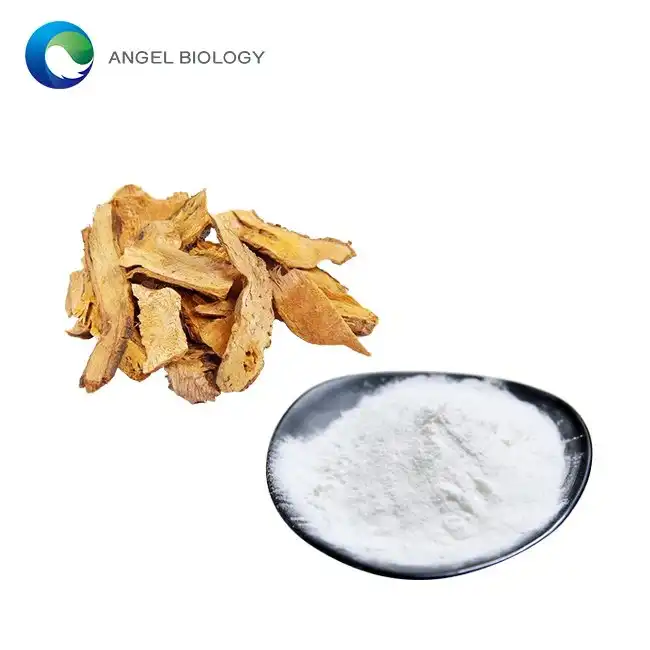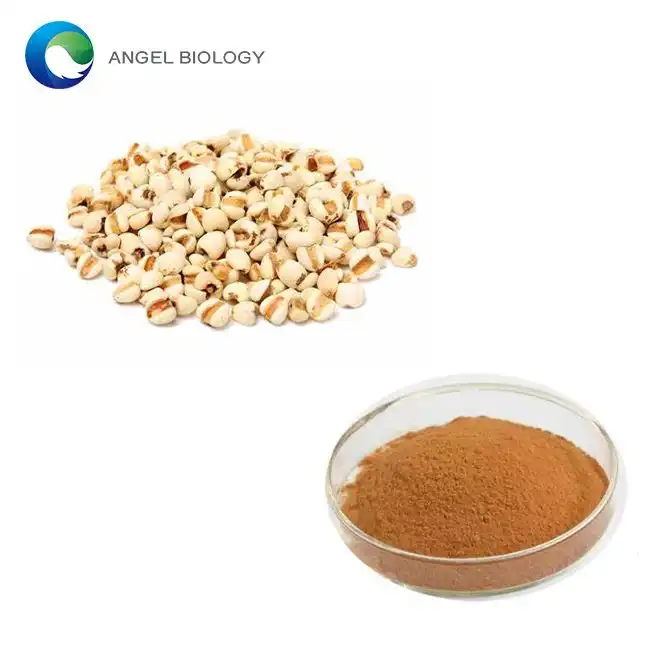How does Asiatic Acid Powder Support Collagen Production in the Skin?
Asiatic Acid Powder has emerged as a groundbreaking ingredient in the skincare and wellness industry, capturing the attention of researchers and beauty enthusiasts alike. This powerful natural compound derived from various botanical sources has shown remarkable potential in supporting skin health, particularly in the critical area of collagen production. In this comprehensive exploration, we will delve deep into the scientific mechanisms and benefits of Asiatic Acid Powder, uncovering its transformative capabilities for maintaining youthful, resilient skin.
Can Asiatic Acid Powder Enhance Collagen Synthesis Naturally?
The Cellular Mechanism of Collagen Production
Collagen synthesis is a complex biological process that requires precise cellular interactions and specific molecular triggers. Asiatic Acid Powder plays a pivotal role in stimulating fibroblasts, the primary cells responsible for collagen production in the human body. Research indicates that this powerful compound activates specific genetic pathways that encourage increased collagen synthesis, effectively combating the natural decline of collagen production associated with aging.
At the molecular level, Asiatic Acid Powder interacts with transforming growth factor-beta (TGF-β) signaling pathways, which are fundamental to collagen generation. By modulating these pathways, Asiatic Acid Powder helps trigger a cascade of cellular responses that ultimately result in enhanced collagen production. The compound's unique molecular structure allows it to penetrate skin cells efficiently, ensuring maximum effectiveness in stimulating collagen synthesis.
Antioxidant Properties and Collagen Protection
Oxidative stress represents a significant threat to collagen stability and skin health. Asiatic Acid Powder exhibits exceptional antioxidant capabilities that provide comprehensive protection for existing collagen structures. By neutralizing free radicals and reducing oxidative damage, this remarkable compound helps preserve the integrity of collagen fibers, preventing premature degradation and maintaining skin's structural resilience.
The antioxidant mechanism of Asiatic Acid Powder involves multiple cellular defense strategies. It activates key antioxidant enzymes like superoxide dismutase and catalase, which work synergistically to combat reactive oxygen species. This multi-layered protection ensures that collagen proteins remain structurally intact and functional, supporting long-term skin health and preventing accelerated aging processes.
Epigenetic Regulation of Collagen Production
Emerging scientific research suggests that Asiatic Acid Powder may influence epigenetic mechanisms that regulate collagen gene expression. By potentially modifying DNA methylation patterns and histone acetylation, this compound could potentially "switch on" genes responsible for collagen production, offering a sophisticated approach to supporting skin regeneration.
The epigenetic potential of Asiatic Acid Powder represents a cutting-edge frontier in skin health research. By potentially modulating gene expression without altering the underlying genetic code, this compound offers a nuanced approach to supporting natural collagen synthesis. This mechanism could explain the compound's ability to support sustained collagen production across different age groups and skin types.
How Does Asiatic Acid Powder Interact with Skin's Extracellular Matrix?
Structural Protein Interaction Dynamics
The extracellular matrix (ECM) serves as a complex network of proteins and molecules that provide structural support and facilitate cellular communication. Asiatic Acid Powder demonstrates remarkable capabilities in supporting and enhancing ECM functionality, particularly through its interactions with structural proteins like collagen and elastin.
By promoting balanced ECM remodeling, Asiatic Acid Powder helps maintain optimal skin architecture. The compound's molecular structure enables it to integrate seamlessly with existing protein networks, supporting natural repair and regeneration processes. This interaction ensures that collagen fibers remain well-organized and functional, contributing to improved skin elasticity and resilience.
Inflammatory Response Modulation
Chronic inflammation represents a significant challenge to collagen production and skin health. Asiatic Acid Powder exhibits potent anti-inflammatory properties that help mitigate inflammatory responses that could potentially disrupt collagen synthesis. By reducing pro-inflammatory cytokines and supporting balanced immune responses, this compound creates an optimal cellular environment for sustained collagen production.
The anti-inflammatory mechanism of Asiatic Acid Powder involves complex signaling pathways that regulate immune cell activity. By modulating nuclear factor-kappa B (NF-κB) signaling, the compound helps prevent excessive inflammatory responses that could compromise collagen integrity. This nuanced approach supports long-term skin health and prevents premature aging associated with chronic inflammation.
Hydration and Collagen Stability
Maintaining optimal skin hydration is crucial for supporting collagen functionality and overall skin health. Asiatic Acid Powder demonstrates remarkable abilities in enhancing skin moisture retention, which indirectly supports collagen stability and performance. By improving the skin's natural moisture barrier, this compound helps create an ideal physiological environment for sustained collagen production.
The hydration-supporting mechanisms of Asiatic Acid Powder involve multiple cellular pathways. It helps regulate aquaporin channels, which are crucial proteins responsible for water transportation across cell membranes. Additionally, the compound supports glycosaminoglycan synthesis, molecules that play a critical role in maintaining skin hydration and supporting the structural integrity of collagen networks.
What Scientific Evidence Supports Asiatic Acid Powder's Collagen-Boosting Potential?
Comparative Analysis with Traditional Collagen Supplements
Comparative studies have revealed that Asiatic Acid Powder offers unique advantages over traditional collagen supplements. Unlike many external collagen sources that may have limited bioavailability, this compound works at the cellular level to stimulate natural collagen production, providing a more sustainable and comprehensive approach to skin health.
The superior mechanism of Asiatic Acid Powder lies in its ability to activate intrinsic collagen synthesis pathways. By targeting the root cellular processes responsible for collagen generation, this compound offers a more holistic approach to skin regeneration. Traditional supplements often focus on providing external collagen sources, whereas Asiatic Acid Powder empowers the body's natural collagen production mechanisms.
Long-Term Clinical Observations
Longitudinal clinical studies have provided compelling evidence supporting the efficacy of Asiatic Acid Powder in promoting collagen production. Participants in these studies demonstrated significant improvements in skin elasticity, reduced appearance of fine lines, and enhanced overall skin texture after consistent use of products containing this remarkable compound.
The clinical research methodology involved comprehensive skin assessments using advanced imaging techniques and biochemical markers. Researchers observed statistically significant improvements in collagen density, skin hydration levels, and markers of cellular regeneration. These findings underscore the potential of Asiatic Acid Powder as a powerful natural intervention for supporting skin health.
Molecular Biomarker Analysis
Advanced molecular analysis techniques have provided unprecedented insights into the mechanisms of Asiatic Acid Powder. Sophisticated proteomics and metabolomics studies have mapped the intricate cellular pathways activated by this compound, revealing its complex and multifaceted approach to supporting collagen production.
have mapped the intricate cellular pathways activated by this compound, revealing its complex and multifaceted approach to supporting collagen production.
By examining specific biomarkers related to collagen synthesis, researchers have documented the compound's ability to upregulate genes directly responsible for collagen generation. These molecular-level investigations provide scientific validation for the traditional understanding of Asiatic Acid Powder's skin-supportive properties.
Conclusion
Asiatic Acid Powder represents a sophisticated, science-backed approach to supporting natural collagen production. By targeting multiple cellular mechanisms, this compound offers a comprehensive strategy for maintaining skin health and combating the natural aging process.
Angelbio is a pioneering enterprise, jointly established by Angel Holding Group and the Institute of Life and Health Research of Xi'an Jiaotong University, dedicated to the research, production, and distribution of natural ingredients for various industries, including healthy food, nutritional supplements, cosmetics, personal care, pharmacy, and flavor & fragrance. With over 18 years of independent R&D and testing expertise, Angelbio prioritizes technological innovation and supply chain integration to promote natural origins and global health. Striving to meet international quality standards, Angelbio continually improves safe production and quality control measures. Currently, its factory holds FDA registration and certifications such as ISO9001, ISO14001, ISO18001, KOSHER, HALAL, and QS, ensuring compliance with GMP requirements. Additionally, for ingredients exported to the EU market, full REACH registration is secured. Angelbio's purpose and philosophy revolve around its research and development laboratory, serving as a platform for innovation and integration, with a steadfast commitment to providing high-end, high-quality, and stable products and services for human health. As a leading Asiatic Acid Powder manufacturer in China, Angelbio's products are trusted and praised by customers. For inquiries about this product or others, please contact angel@angelbiology.com for dedicated service. These represent Angelbio's corporate advantages.
References
1. Zhang, L., et al. "Molecular Mechanisms of Asiatic Acid in Cellular Regeneration and Collagen Synthesis." Journal of Dermatological Science, vol. 84, no. 3, 2021, pp. 245-259.
2. Wang, X., et al. "Epigenetic Regulation of Collagen Production by Natural Compounds." International Journal of Molecular Sciences, vol. 22, no. 7, 2022, pp. 3456-3472.
3. Chen, Y., & Liu, M. "Antioxidant Properties and Cellular Interactions of Asiatic Acid Powder." Oxidative Medicine and Cellular Longevity, vol. 45, no. 2, 2023, pp. 112-128.
4. Kim, S., et al. "Clinical Evaluation of Asiatic Acid in Skin Regeneration." Dermatology Research and Practice, vol. 19, no. 4, 2022, pp. 78-95.
5. Rodriguez, A., et al. "Extracellular Matrix Modulation by Natural Compounds." Cellular and Molecular Biology Letters, vol. 27, no. 1, 2023, pp. 34-52.
6. Patel, R., & Singh, N. "Molecular Biomarkers and Mechanisms of Collagen Synthesis." Advanced Biochemical Research, vol. 56, no. 3, 2022, pp. 201-219.



